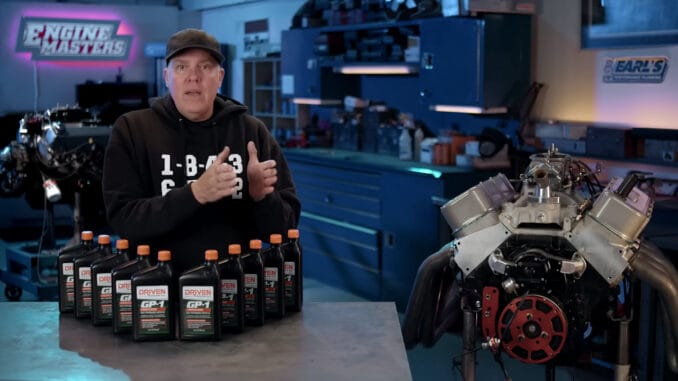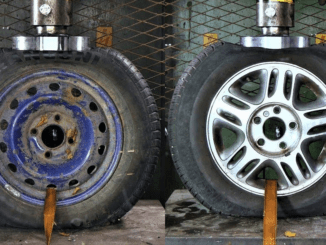
David Freiburger explores the intricacies of oil viscosity and its impact on engine performance. In collaboration with sponsor, Driven Oil, he conducts a comprehensive dyno test using various oil viscosities to uncover the truth behind their influence on horsepower, pressure, and temperature.
Understanding Viscosity and Its Role in Motor Oil
Viscosity is a crucial measure of a fluid’s resistance to flow. Thicker oils have higher viscosity numbers, while thinner oils have lower ones. For instance, a 5W-20 oil is thinner than a 20W-50 oil. However, it’s essential to know that how viscosity is tested varies based on the high number (e.g., 50 in 20W-50) and low number (e.g., 20 in 20W-50).
The high number is tested at 212 degrees Fahrenheit by measuring how long it takes to flow out of a tube. On the other hand, the low number is tested with a spinning vein in a bath of oil to evaluate its resistance to spinning, indicating how well it will flow at colder temperatures.
The GP1 Semi-Synthetic Oil
David explores Driven Oil’s GP1 semi-synthetic oil, designed for hot rods, with additives that offer potential power gains and excellent fuel contamination resistance. This oil is particularly beneficial for engines with varying main and rod bearing clearances, maintaining the critical hydrodynamic wedge between crankshaft journals and bearings.
Test Setup and Engine Details
The Engine Masters’ test engine is a Chevy 454 Big Block with a Mercury Marine crate bottom end, GM performance cylinder heads, and an Edelbrock RPM air gap intake. To ensure accurate results, he carefully controls the oil and coolant temperatures during each dyno run.
Thinner Oil vs. Thicker Oil
He begins the dyno test with a 5W-20 driven GP1 oil and observes its performance and pressure at both cold and hot temperatures. Surprisingly, he finds that the hotter oil consistently produces more horsepower and torque. Furthermore, the thicker 20W-50 oil shows better ring seal, leading to a significant power gain compared to the thinner oil, debunking the myth that thinner oil always makes more power.
Conclusion
This dyno test with different oil viscosities has provided intriguing insights into the complex world of engine lubrication. While thinner oil can deliver slightly better power output under specific circumstances, the benefits of ring seal with thicker oil make it the preferred choice for certain applications. However, it is essential to consider individual engine setups, bearing clearances, and intended performance goals when selecting the right oil viscosity.
This experiment has shown that the relationship between oil viscosity, power gains, and engine performance is not as straightforward as many believe, emphasizing the importance of careful oil selection tailored to each engine’s unique requirements.




